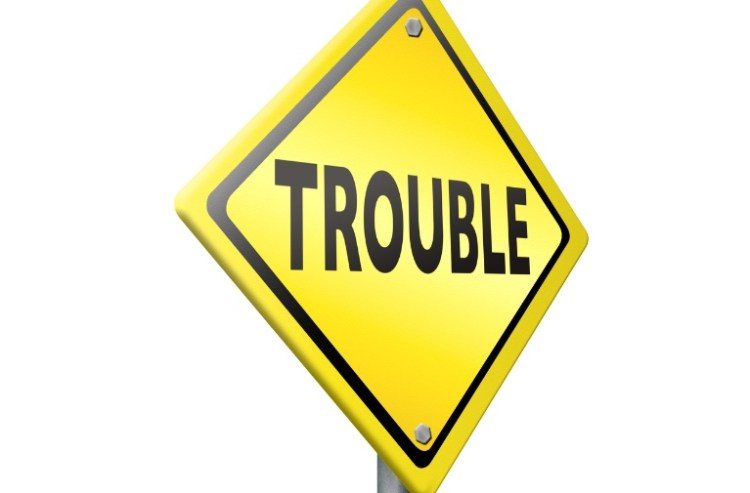 Chances are, if you’re a reasonably successful startup, you’ll eventually face a PR disaster. How you respond can turn that disaster into a marketing opportunity, a bump in the road, or the iceberg that sinks your company.
Chances are, if you’re a reasonably successful startup, you’ll eventually face a PR disaster. How you respond can turn that disaster into a marketing opportunity, a bump in the road, or the iceberg that sinks your company.
Although we like to be optimistic and think nothing bad will happen, it’s best to prepare for disaster. You should be able to anticipate likely scenarios of things that might go wrong.
Imagine you’re running a startup that allows people to rent out their homes or spare rooms to others. Once you reach a certain level of success, every one of these things will happen:
- Someone will get evicted because renting out their spare room violated their lease agreement.
- Someone will get sued after a guest trips and falls in their room. Because they were renting out their place for money, their insurance company will deny the claim.
- A guest will be raped by their host.
- Some pervert will install a camera in the shower and post pictures of a guest online.
These things aren’t unforeseeable. (I just foresaw them.) This isn’t fearmongering or anything unique to startups. Sadly, such things happen in our society when you reach a certain scale. Even Starbucks was sued after a man’s five-year-old daughter allegedly found a camera hidden in a bathroom.
But Starbucks has three key advantages that most startups don’t: It’s well versed in public relations, it has a strong brand, and it isn’t subject to media fears of the Internet bogeyman.
Too often, startup execs make rash statements after a disaster. Most executives at big companies have been trained on how to speak with the media. Given the strength of the Starbucks brand, few people would think Starbucks would endorse putting cameras in bathrooms. But as a startup, post-disaster may be the first time most people hear of your brand.
The mainstream media still have a fear of the Internet, despite it’s having been a key part of our lives for more than a decade now. Anything bad that happens on the Internet instantly gets more attention. Credit card fraud happens all of the time — we give our credit cards to waiters who walk away with them — but an equivalent amount of fraud online will get much more attention.
You can’t do anything about the Internet bogeyman. But you can avoid some of the most common mistakes I see startups make:
- Not having a single person (preferably the CEO) responsible for making all comments. Yes, we’re all flat organizations and we believe in equality. But now is not the time to have random staffers tweeting their thoughts.
- Blaming the victim. It’s possible that the victim really played a role in what happened. But blaming the victim in the immediate aftermath, before an investigation has taken place, is a bad idea.
- Trying to intimidate the complainant. Don’t ask people to remove blog posts or photos they’ve posted. Once something is out there, it’s out there. Asking someone to take down a blog post will likely lead to more attention to it.
- Explaining economic theory or contractual relationships. Our hypothetical room rental startup might have legalese to protect it as purely a marketplace if the case ever goes to trial and the judge buys the argument. But this argument is guaranteed to be a loser in the court of public opinion.
- Not engaging a crisis PR firm as soon as they know things are bad. Crisis PR is very different from the typical “please, please write about us” PR. My view is that VCs should have warm relationships with such firms and be able to call up in a hurry on behalf of their portfolio companies. If your VCs can’t help, maybe your attorney or regular PR firm knows someone.
The most important thing you can do is plan in advance. By identifying likely scenarios, you can figure out what to do when something happens.
Identifying likely scenarios also gives you the opportunity to figure out ways to make sure they won’t happen or at least take steps to mitigate the risk. Our room rental startup, for example, could find an insurance company that will cover liability claims from guests. Because this is a low-frequency event, it’s a risk that should be insurable at low rates.
That could be a much better approach than dealing with the aftermath of a PR disaster.
[Top image credit: Dirk Ercken/Shutterstock]
Rocky Agrawal is an analyst focused on the intersection of local, social and mobile. He is a principal analyst at reDesign mobile. Previously, he launched local and mobile products for Microsoft and AOL. He blogs at http://blog.agrawals.org; and tweets at @rakeshlobster.
VentureBeat's mission is to be a digital town square for technical decision-makers to gain knowledge about transformative enterprise technology and transact. Learn More

